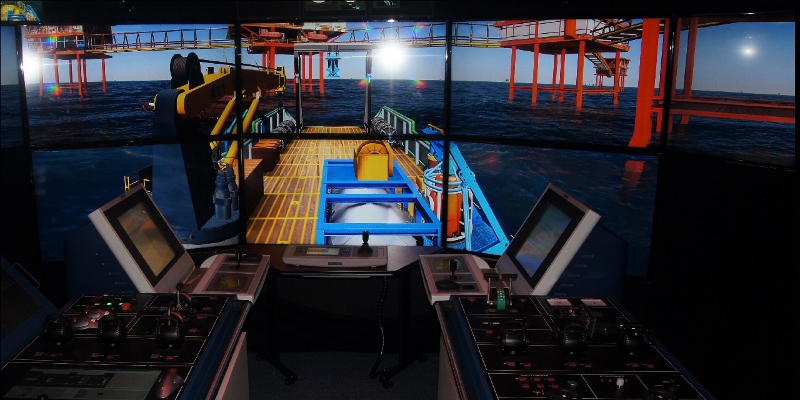The GE Marine Technical Training Center in Houston, Texas, has been accredited to conduct dynamic positioning operator (DPO) Phase 4, Phase 5, grandfathering and revalidation assessments, the Offshore Service Vessel Dynamic Positioning Authority, Inc. announced June 8.
GE Marine is the second Houston area training facility to be accredited by OSVDPA, and the third to receive approval from the New Orleans-based authority.
“We are very excited to have GE Marine join the fold as another OSVDPA-accredited training provider,” said Aaron Smith, the authority’s executive director, in announcing the accreditation. “GE has an exceptional training facility and team at its Houston center, and it was obvious to us that their training and industry expertise will be a huge benefit to the DP industry, particularly to those DPOs and prospective DPOS who choose to have their assessments conducted at their facility.”
Mariners seeking OSVDPA DPO certificates must complete two classroom courses, one focused on the theoretical knowledge behind DP operations and the other gaining DP experience via the use of DP simulators. In addition to the classroom courses, mariners must also successfully complete an assessment upon completion of each phase of the OSVDPA DPO Certification Scheme.
These assessments range from a multiple-choice style assessment following Phase 1 to an onboard task-oriented assessment in Phase 2 and practical tests of a DPO’s knowledge and ability following Phases 3, 4, and 5. As specified in the OSVDPA’s scheme requirements, every DPO seeking to obtain a DPO certificate from the OSVDPA, regardless of his or her experience, must successfully complete at least one of these assessments.
GE Marine trainers have wanted to join the authority’s training program, said Rayna Layne Seamans, senior marine training manager for GE Marine.
“The program by which the OSVDPA facilitates DP training should prove very effective. They are customer-driven and industry-focused, and I am so happy that we have ‘joined the family’, so to speak,” Seamans said. “At a time when so many DPOs have not been in front of the controls for months or years, assessment-based training is just what we need to keep standards high.”
The OSVDPA accreditation process involves an applicant submitting a package of forms describing its operation, curriculum, facilities, simulators, and instructors. Once submitted, OSVDPA staff and an independent OSVDPA-approved auditor review all of the information to ensure all requirements are satisfied.
After the document review is completed, the audit team conducts a site visit of the training provider to ensure the facility and simulator meet OSVDPA standards, assess the instructors, and observe the instructors conducting courses and assessments.





